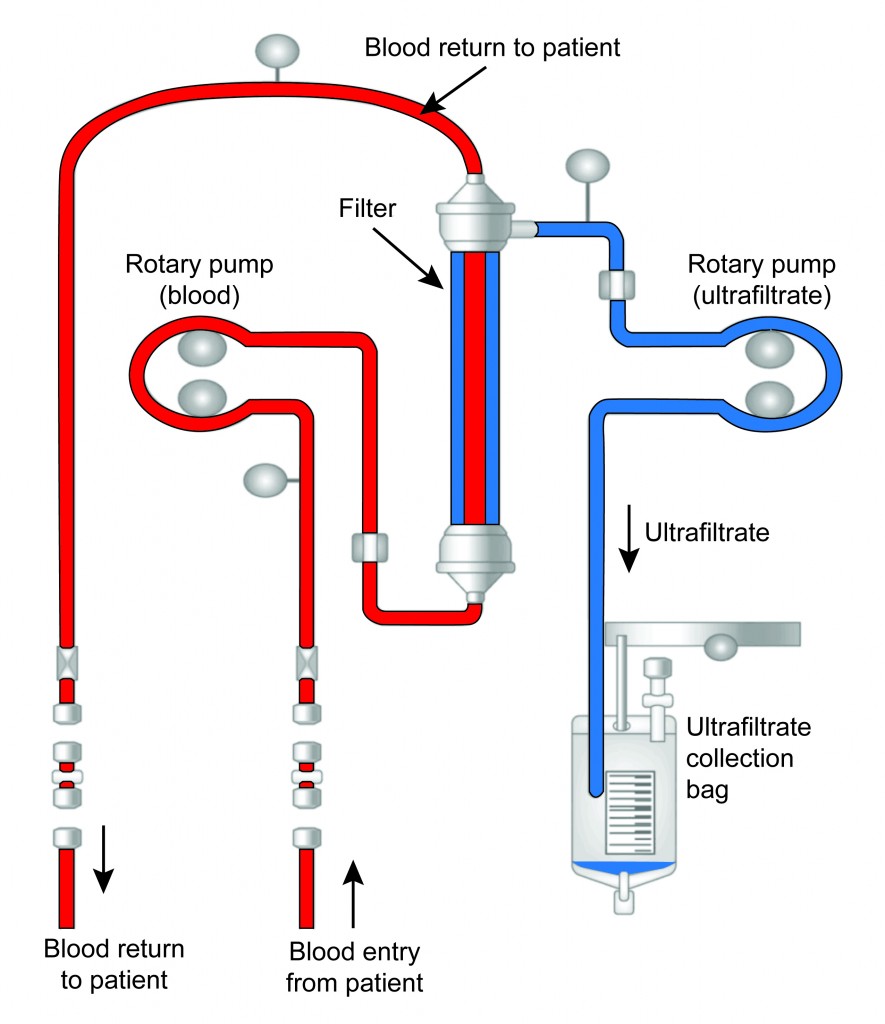Inicio › Tratamiento › Peripheral Ultrafiltration
Peripheral Ultrafiltration
Peripheral Ultrafiltration is a medical therapy that utilizes a portable machine that passes the patient’s blood from a peripheral vein through a filter to remove excess fluid. The filtrate is then returned to the body. An advantage to this therapy is the requirement of only a small amount of blood to achieve relief of congestion without disrupting the body’s electrolyte balance, heart rate, and blood pressure. Patients undergoing ultrafiltration will typically have an average hospital length of stay of three days. 
Indications for Ultrafiltration
It is quite common in patients with decompensated heart failure to present with fluid (volume) overload, including pulmonary congestion, also known as pulmonary edema. When there is insufficient heart pump function, there can be adverse increases in blood pressure in the periphery or pulmonary circulation, leading to the leakage of fluid from blood vessels into surrounding tissue. This edema can lead to dyspnea (difficulty in breathing), fatigue, and dizziness, among other symptoms. Thus, volume management becomes a vital treatment for heart failure patients.
Complications
A typical treatment for removing excess fluid in the presence of heart failure is the use of diuretics. However, as heart failure progresses, patients may have a reduction in response to diuretics. Ultrafiltration can alleviate excess volume as well as improve diuretic sensitivity. However, ultrafiltration may not be a suitable therapy for all. Patients suffering from renal insufficiency may have a greater benefit from dialysis as a method of fluid removal. In this population ultrafiltration can contribute to continued worsening renal function. Thus, it is important to have a nephrology consultation prior to receiving peripheral ultrafiltration.


 English
English









